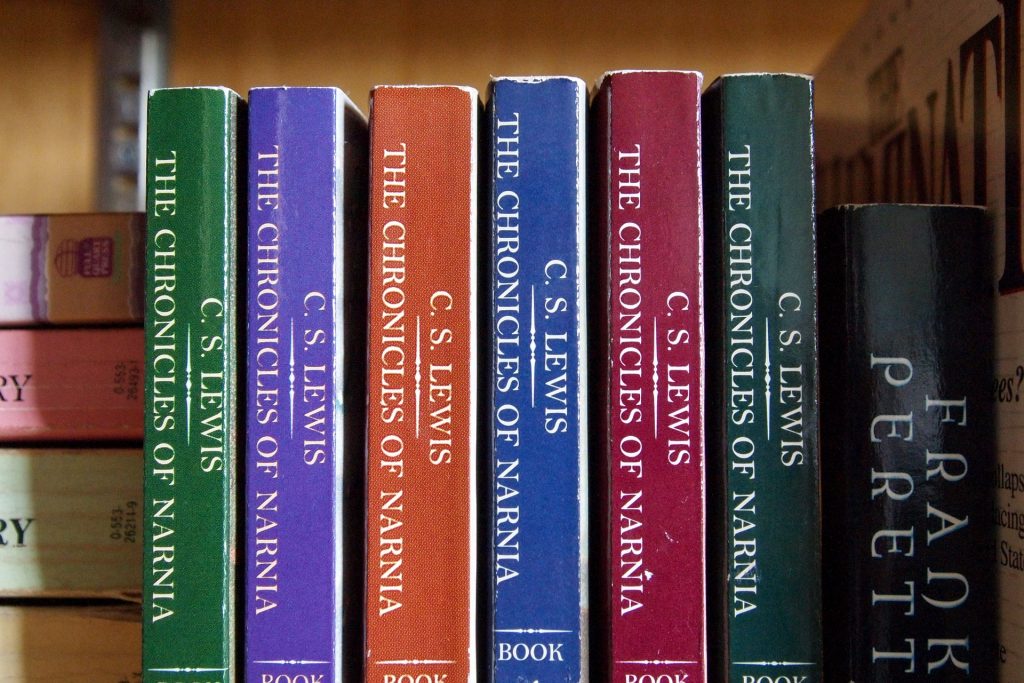Review of Ward, M (2008) Planet Narnia: The Seven Heavens In The Imagination Of C.S. Lewis, Oxford University Press 2008 (pp 345)
The Skeptic (UK) 23:4 (2012), 37; Skeptical Adversaria 3 (2012), 2-3
Reproduced with permission
As children, many readers may have enjoyed the series of seven ‘Narnia’ books written in the mid-20th Century by the Oxford academic C.S. Lewis (1898-1963). Lewis used these stories to express his theological views, which were those of an erstwhile atheist returning to the Christian faith of his childhood. [1] He also wrote a science-fiction trilogy and much theologically-oriented non-fiction.
Widely-read corpora such as these naturally attract many interpretations, some of them seeking hitherto unrecognised patterns and themes. In this case, the Christian sub-text is plain enough, even to some young readers, at least in some of the books; the lion-divinity Aslan sacrifices himself in The Lion, The Witch And The Wardrobe, and the Narnian world eventually ends in transition to a ‘higher’ state in The Last Battle . But no serious reader has ever doubted the presence of other motifs and messages. And, as Michael Ward argues in his introduction, some of these may be deliberately covert. Ward himself believes that he has discovered a further coherent sub-text covering all seven books, involving ancient pagan astrology and astronomy and in particular the ancient associations of the ‘seven planets’, ie the Sun, the Moon and the planets out to Saturn, minus Earth (the outer planets were of course unknown until modern times). Each book is themed according to the attributes of a given ‘planet’.
Lewis regarded paganism as the groping of pre-Christian thought towards the truth which was fully revealed in Christianity. [2] While he knew that ancient geocentric cosmologies were factually mistaken, he saw in them much truth of other, theological types, not subject to empirical disconfirmation. [3] Ward’s thesis is thus prima facie by no means implausible.
Ward himself is an Anglican priest and a theologian, and he evidently endorses not only Lewis’s Christian world view but also his entire vision. [4] His book is thus more important for a skeptical audience than would be the case if it involved only the exegesis of fantasy literature. It has to be said that he does not succeed in producing a case for the Lewisian model of the universe that would persuade a well-informed unbeliever. Indeed, he does not really attempt this. But – whether or not he is correct in his specific interpretive thesis – he does provide a new, well-researched account of Lewis’s thought in general, and this can be considered on its merits by philosophically-inclined readers.
It remains unclear, however, whether Ward is indeed correct in his specific thesis. He marshals much textual evidence in its support, and he critiques (rather briefly) other interpretations and the ‘null hypothesis’ that there is no second sub-text. But he does not devote much space to the seeking-out of contrary evidence, and many of the equations between elements in Lewis’s text and the relevant astrological notions seem rather imprecise and marginal. In sum, this proposal will require much more discussion if all Lewis scholars are to accept it.
NOTES
[1] He was decisively influenced in this respect by another member of the ‘Inklings’ literary circle, J.R.R. Tolkien, who himself approached the issues very differently in The Lord Of The Rings.
[2] Although he respected thoughtful atheists, the mature Lewis believed that they were, in the final analysis, patently confused and wrong, lacking a coherent place in the intellectual world. Indeed, his vision of the moral and psychological requirement for humanity to subordinate itself to divine will is in places disturbingly uncompromising for the non-believing reader.
[3] He felt, indeed, that empirical precision actually hindered perception of such things.
[4] Indeed, in places Ward simply accepts the truth of Christianity and of spiritual entities generally as a matter of fact.

